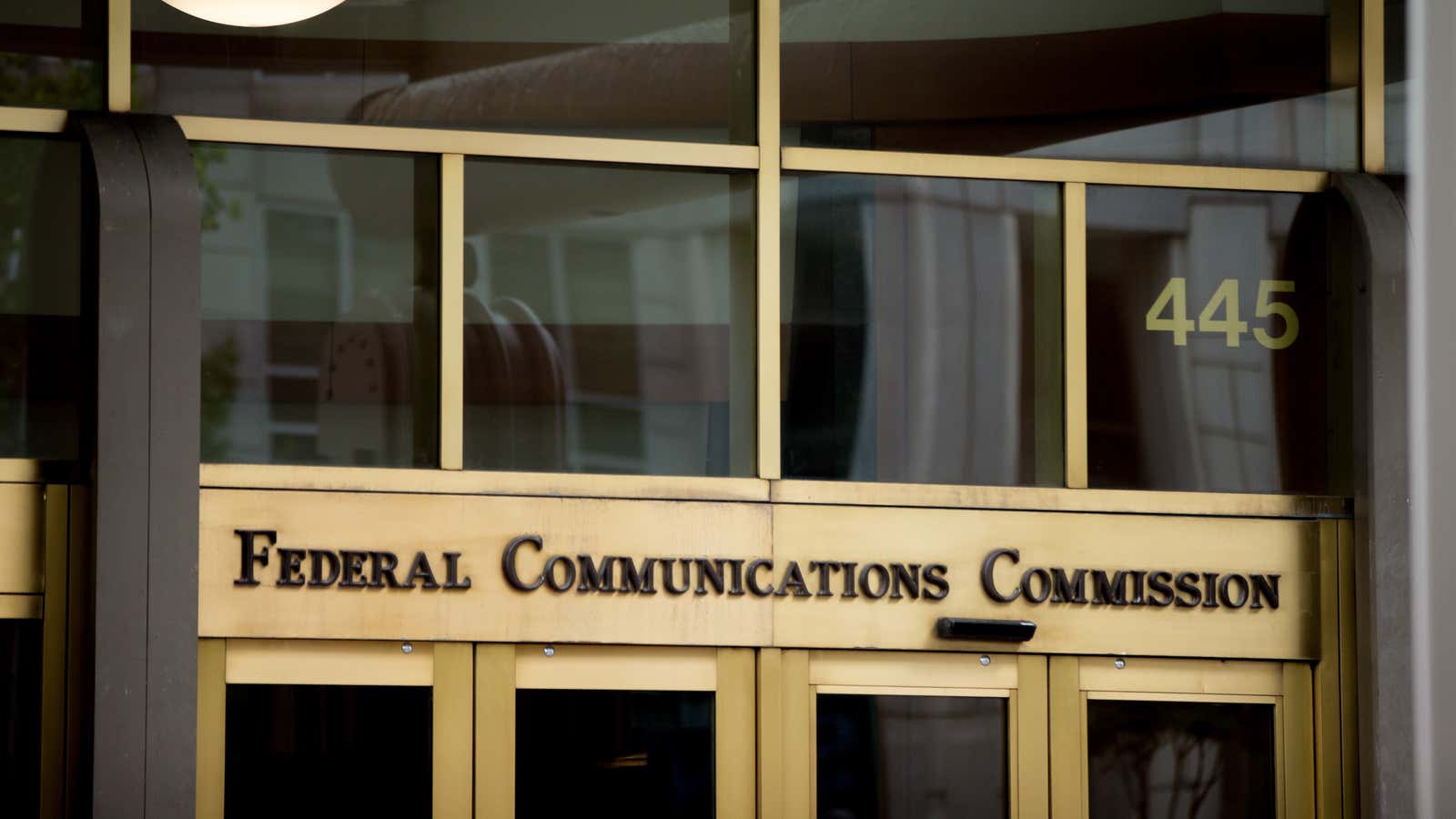The reins of the Federal Communications Commission (FCC)—the agency that fought to preserve net neutrality earlier this year—will now be held by staunch net-neutrality opponents.
Current net-neutrality regulations bar telecom companies from manipulating the content people access, and from charging higher prices for priority delivery of different services. When a Washington DC circuit court backed those rules in June, telecom giants balked. Comcast, AT&T, and Verizon argued that net-neutrality rules stifle innovation and raise prices, but sites like Amazon and Netflix applauded the decision. It seemed like hours upon hours of un-throttled House of Cards viewing were in everyone’s future.
Now all of that is in jeopardy. On Nov. 21, president-elect Donald Trump named two men to his FCC transition team: Mark Jamison, a former Sprint lobbyist, and Jeffrey Eisenach, an economist who worked for the Federal Trade Commission (FTC) during the Reagan administration. Eisenach was most recently a consultant for Verizon, and once wrote that “declaring the Internet a public utility is not necessary.”
The duo’s views on net neutrality may be a departure from the Obama administration, but Trump is staunchly against net neutrality. Telecom lobbyists, who have long hoped the case would end up in the Supreme Court, could doubly benefit if Trump also ends up choosing the next SCOTUS justice.
The loss of net-neutrality could spell bad news for consumers. Given the freedom to favor some content over others, major telcos will likely increase costs for streaming apps like Netflix, while favoring content providers with whom they’re affiliated or have deals. Those cost increases would fall on Netflix, which could easily pass them on to consumers.




